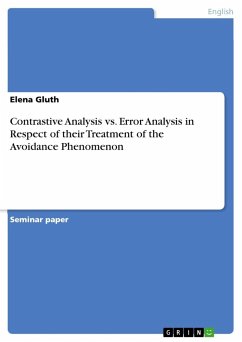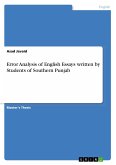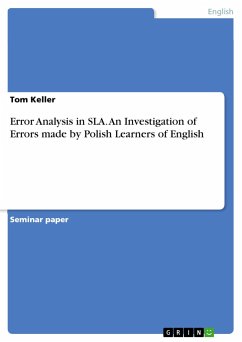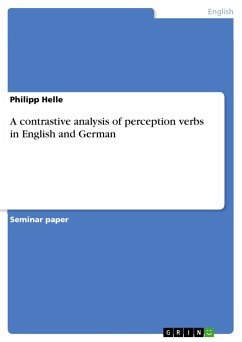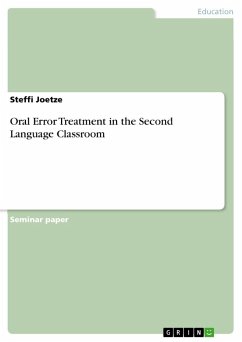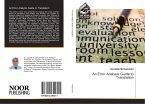Seminar paper from the year 2003 in the subject English Language and Literature Studies - Linguistics, grade: 1,5, Free University of Berlin (Institut für Englische Philologie), language: English, abstract: This research paper compares contrastive analysis with the error analysis approach in respect of their treatment of avoidance behaviour. It considers several researches on avoidance behaviour and shows that contrastive analysis predicts the avoidance phenomenon in most cases and, therefore, gives a complete description of the areas of difficulty for learners of a second language.There exist two different approaches for the identification of possible learning problems in the second language acquisition: contrastive analysis and error analysis. A number of proponents of an error analysis approach claim that contrastive analysis cannot serve as an adequate tool for identifying the areas of difficulty for learners of a second language. But on the other hand, it has been noticed that error analysis is not able to explain the avoidance phenomenon, since error analysis registers only the errors done by learners of a second language. Avoidance behaviour represents a communicative strategy of a learner of a second language by which the learner prefers using a simpler form instead of the target linguistic element for the reason of difficulty on the part of the target feature. Consequently, avoidance behaviour serves as a manifestation of learning problems, and its results should be definitely considered when compiling language syllabi and tests.

